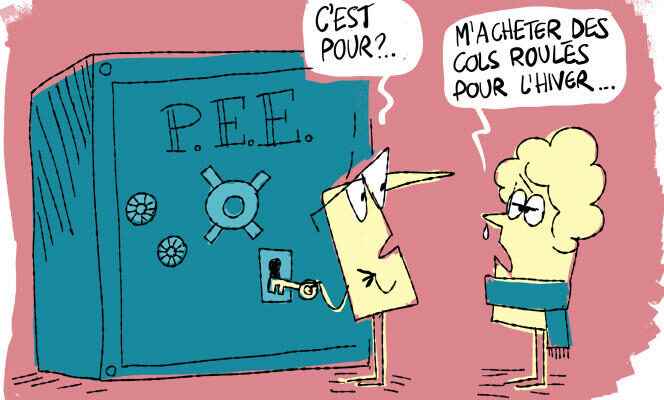Employee savings to the rescue of purchasing power? It is in any case the idea of the senators… The latter have indeed introduced, in the law carrying emergency measures of August 16, a possibility that will interest you if you need cash, in this inflationary context: until the end of 2022, it is possible to withdraw from your company savings plan (PEE) part of the money blocked there, up to a limit of 10,000 euros. Nearly one out of two employees has access to a PEE, one can place there, in particular, the bonuses of profit-sharing and participation paid by the employer.
Usually, the sums lodged in a PEE must remain there for five years, unless there is a good reason for withdrawing them, that is to say to be in one of the cases of early release listed by the labor Code (purchase of his main residence, termination of the employment contract, marriage or PACS, etc.)
Exceptionally, this time you do not need to justify your request, the law simply indicates that the money must be used to “finance the purchase of one or more goods or the supply of one or more services”, without restriction on their nature. Purchases must be made between August 18 and December 31. And keep the supporting documents (receipts, invoices), to be able to prove the use made of the amount, if the tax authorities check you later.
“The retention period for supporting documents is three years”, remind him Ministry of Labour on its site, stating that “these sums are intended solely to support household consumption and are not intended to be reinvested in other savings schemes”. They must not “be reinvested in rental real estate or investment products or securities (passbooks, life insurance, shares, etc.), or be used to repay a loan or pay taxes. But “tuition fees are accepted”.
Are concerned
Be careful, not all the money immobilized in your PEE can be withdrawn: the measure only applies to the amounts resulting from profit-sharing and participation, including the matching contribution paid by the employer on these two types of payment. “The employer’s contribution to voluntary payments by savers is not eligible, nor are the amounts paid into company retirement savings plans, whatever their nature”, emphasizes Jean-Christophe Benzo, Managing Director of Groupama employee savings.
Another important restriction: “It is not possible to release the sums invested this year, only those paid into a PEE before 2022 are concerned”, explains Catherine Pays-Lenique, CEO of Epsens. Investments in so-called “solidarity” employee savings funds are also excluded. And the sums invested in employee share ownership are only accessible if an agreement to this effect has been signed within the company, which must also communicate on this subject.
You have 56.19% of this article left to read. The following is for subscribers only.
